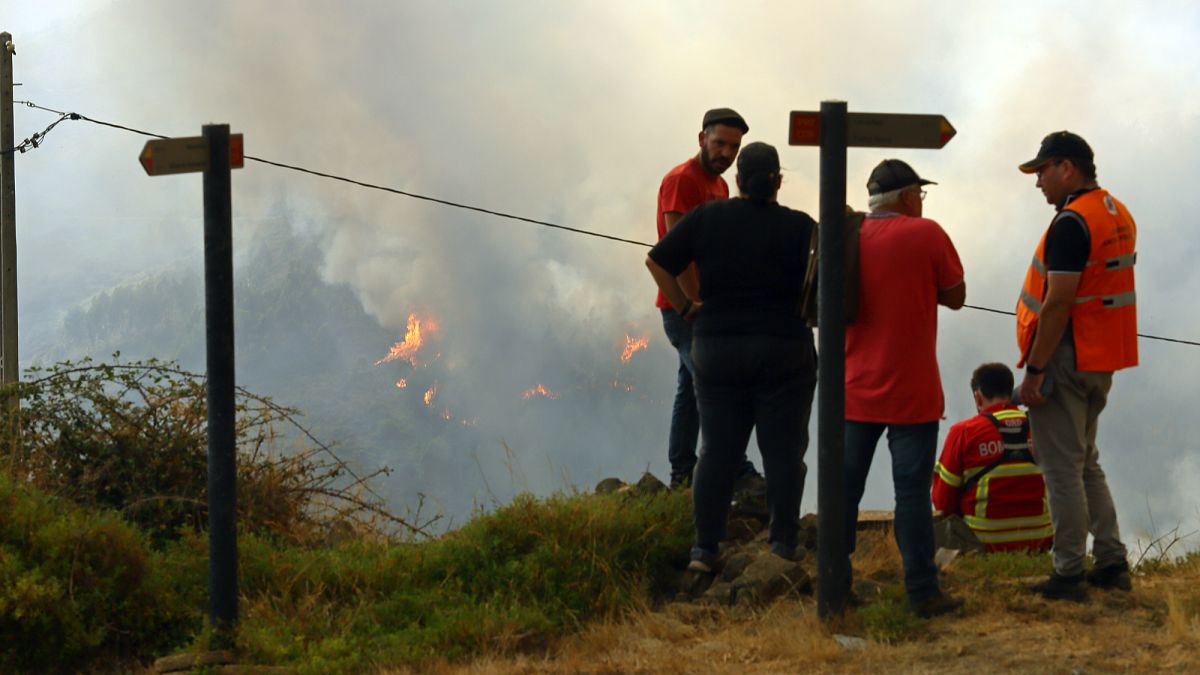

This summer has brought unprecedented heatwaves to Europe, prompting Spain and Portugal to declare a state of high alert due to the heightened risk of wildfires. As temperatures continue to rise across the continent, various regions are adapting in innovative ways to mitigate the effects and safeguard their populations.
In recent days, the Iberian Peninsula has experienced a significant increase in temperatures, pushing both Spain and Portugal into a high-alert status to manage the imminent threat of wildfires. Portuguese Minister of Internal Affairs, Maria Lúcia Amaral, announced that the alert measures for mainland Portugal began on Sunday at midnight and will remain in place until Thursday, August 7th. This careful approach underscores the urgency of addressing the extreme weather conditions while maintaining public safety.
As southern European countries face the challenges brought on by these heatwaves, it becomes evident that strategic planning and clear communication are essential. Unfortunately, this aspect has not been universal. Across various regions, like Cyprus, the implementation of response plans has encountered stumbling blocks. An early warning system failed, and a scattered evacuation strategy led to confusion among locals. Such shortcomings highlight the broader challenges faced in southern Europe, where effective communication and collaboration are crucial in wildfire management. These events call for a comprehensive review of current protocols to ensure that communities are better prepared in the future.
Yet, amidst these trials, regions such as Biscay in northern Spain showcase examples of proactive measures and technological innovation in adapting to climate change. The city of Bilbao stands out with its forward-thinking strategies, such as storm-proofing its electricity grids and transitioning its ports to electric power. These measures are aimed at reducing emissions and building resilience against the adverse effects of climate change. As a coastal city, Bilbao is particularly vulnerable to climate variability, making these initiatives both necessary and timely.
The Iberian Peninsula’s experience with extreme weather patterns serves as a reminder of the complex interplay between climate change and infrastructural resilience. These developments emphasize the need for continuous investment in technology and infrastructure to adapt to the changing climate. Innovative solutions, like those seen in Bilbao, not only protect against the immediate risks of wildfires and heatwaves but also contribute to long-term sustainability and energy efficiency.
As Europe navigates through this intense summer, it’s heartening to witness how communities, governments, and industries are rallying to respond thoughtfully and effectively. The dynamics in Iberia and beyond illustrate a broader commitment to addressing climate challenges with steadfast resolve and strategic foresight. While the heatwaves pose immediate challenges, they also offer an opportunity for reflection and action toward a more sustainable future.
In conclusion, as temperatures continue to soar, the collaborative efforts and adaptive innovations across Europe provide a hopeful glimpse into a future where resilience and innovation go hand in hand. The journey toward sustainability is a shared responsibility, urging us all to contribute to the transformative solutions necessary to thrive in an evolving climate landscape.
Source: {link}
